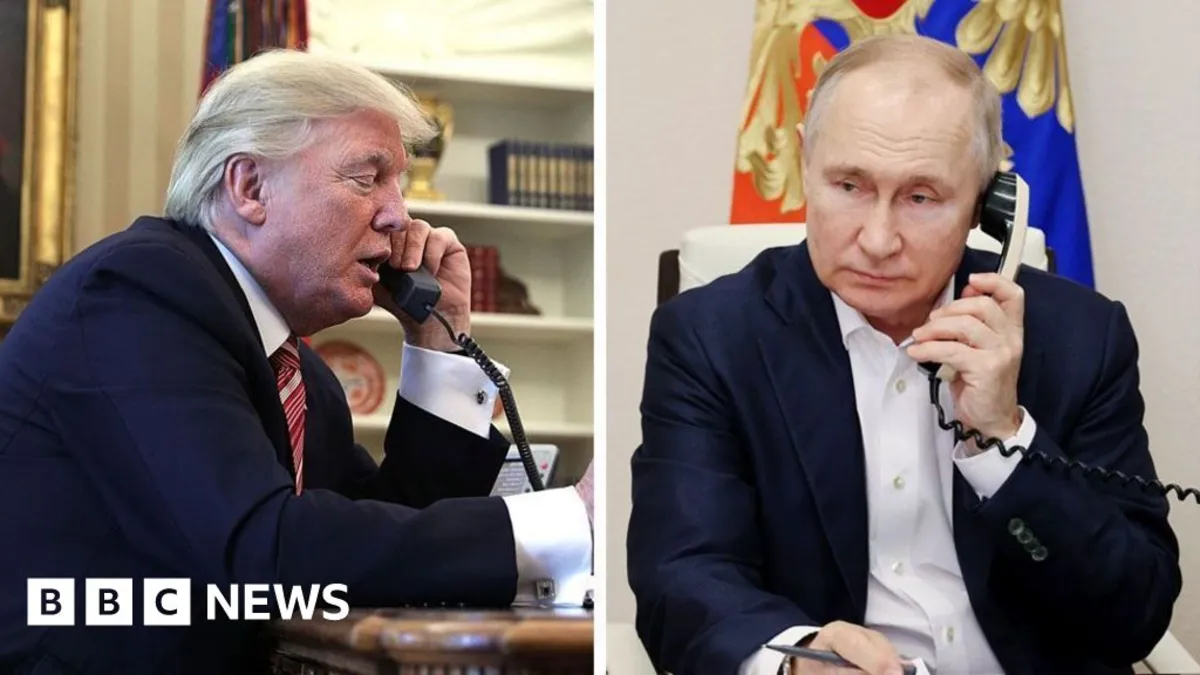
On a recent phone call, US President Donald Trump reported that significant progress was made in discussions with Russian President Vladimir Putin. The two leaders agreed to hold face-to-face talks in Hungary, marking the first direct communication since mid-August. Trump described the call as very productive, stating that teams from both Washington and Moscow would meet next week to further discuss key issues.
While Trump did not confirm a specific date for his meeting with Putin in Budapest, the Kremlin announced that preparations for the summit would commence immediately following their "extremely frank and trustful" conversation. This development comes just a day before Ukrainian President Volodymyr Zelensky is scheduled to visit the White House, amidst ongoing deliberations about arming Ukraine with Tomahawk missiles that have the capability to strike deep into Russian territory.
Following the call, Trump took to his Truth Social platform to express optimism, indicating that he and Putin had spent considerable time discussing future trade relations between the US and Russia, particularly in the context of a post-war Ukraine. He mentioned that high-level advisors from both nations would convene at an unspecified location next week, with Secretary of State Marco Rubio leading the American delegation.
In his discussions with the media, Trump expressed confidence in the progress made during the telephone conversation, stating, "I believe great progress was made with today's telephone conversation." He also mentioned plans to update Zelensky on the outcomes of his talks with Putin, reinforcing the importance of communication between the two leaders.
When questioned about the possibility of supplying Ukraine with Tomahawk missiles, Trump expressed caution, saying, "We can't deplete the US stockpile of Tomahawks... we need them too." This highlights a delicate balance between providing military support to Ukraine and maintaining US military readiness.
In response to ongoing Russian aggression, Ukraine's Ambassador to the US, Olga Stefanishyna, condemned Russia's overnight strikes on Ukraine as indicative of Moscow's true intentions regarding peace. She emphasized that these assaults demonstrate a strategy of terror and exhaustion, advocating for increased pressure through tougher sanctions, enhanced air defense, and the provision of long-range capabilities to Ukraine.
Hungarian Prime Minister Viktor Orban welcomed the planned Budapest meeting, referring to it as "great news for the peace-loving people of the world." He called for Europe to adopt a more humble and patient approach towards resolving the conflict, emphasizing that only through dialogue can peace be achieved on the continent.
Since the August summit in Alaska, where no significant breakthroughs were achieved, Trump has adopted a tougher stance toward Putin regarding the ongoing Ukraine war. During the August summit, Trump had hoped to persuade Putin to engage in comprehensive peace talks. Since then, the communication between the two leaders had been sparse until this recent phone call.
Trump's initial claims during his presidential campaign suggested he could resolve the Ukraine conflict swiftly; however, he has since acknowledged the complexities involved in achieving peace. His relationship with Zelensky has improved, particularly following a turbulent meeting in February, where tensions were evident.
As Zelensky prepares for his third visit to Washington since January, discussions surrounding the provision of Tomahawk missiles are expected to take center stage. These advanced missiles, with a range of 2,500 km (1,500 miles), could significantly enhance Ukraine's defensive capabilities. When asked about the possibility of supplying these missiles to Ukraine, Trump remarked, "We'll see... I may," indicating that the situation remains fluid.
The ongoing dialogue between the US and Russia, as well as support for Ukraine, continues to be a focal point of international relations, with significant implications for global peace and security.